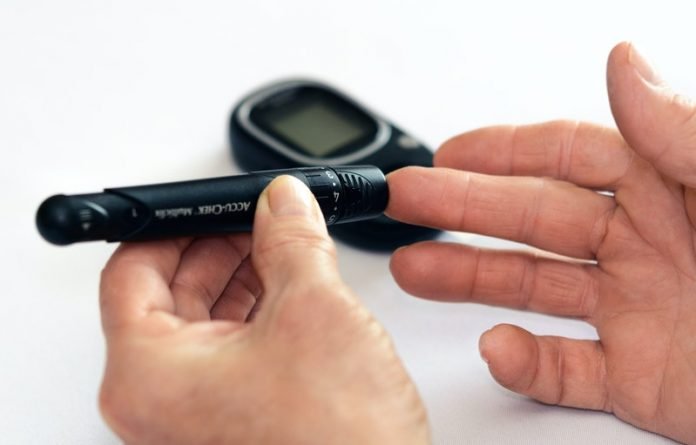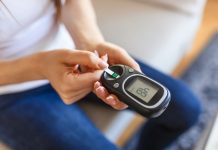
Scientists found that the patients with diabetes have higher levels of inflammatory biomarkers compared to those without diabetes, exacerbating the effects COVID can have on the body.
In the study, researchers tested more than 2,000 hospitalized COVID-19 patients and found that certain attributes of diabetes, including high suPAR levels and high blood sugar levels, are correlated with worse COVID-19 outcomes.
One inflammatory biomarker in particular, soluble urokinase plasminogen activator receptor or suPAR, is a circulating protein and notorious for its role in kidney failure and heart disease.
This protein, in a multivariable analysis of other inflammatory markers, was the only one to show a significant impact on the relationship between diabetes and worse COVID outcomes.
The team also found that high blood sugar levels and higher insulin doses were independent predictors of worse COVID-19 outcomes.
One main takeaway from this work is that the association between diabetes and COVID-19 outcomes is largely mediated by high inflammation in the body, as assessed by suPAR levels.
According to the team, participants with diabetes had 20.7% higher suPAR levels than those without diabetes.
However, the impact of hyperglycemia is independent of inflammation which means no matter what a patient’s suPAR levels indicate, having high blood sugar levels or high insulin doses will also result in more serious COVID-19 illness.
This suggests that hyperglycemia affects COVID-19 outcomes through non-inflammatory processes, warranting further investigation.
These findings highlight the importance of a multidisciplinary approach to tackling the issue of diabetes and its relationship with worse COVID-19 outcomes.
However, understanding the interplay between these different variables, as well as their individual effects on COVID-19 outcomes, isn’t enough to improve the outlook for these patients.
The team says factors like age, body mass index and race need to be considered in order to provide the best quality, personalized care for at-risk patients.
Those with diabetes were older, more likely to be Black and had a high BMI.
The team says for those with diabetes, suPAR levels, BMI, admission blood sugar levels, and age seem to be most significant, in that order.
In fact, they found that suPAR levels accounted for 84.2% of the effect of diabetes on worse COVID-19 outcomes.
Further study is needed to determine how suPAR and hyperglycemia can be therapeutic targets for the management of COVID-19 in those with diabetes.
If you care about COVID, please read studies about these two drugs may help you recover from severe COVID-19 and this stuff in the blood tied to severe COVID-19.
For more information about COVID, please see recent studies about drug that may help prevent serious illness in COVID-19, and results showing this supplement could reduce coughing, congestion, and sore throat.
The research is published in Diabetes Care and was conducted by Salim Hayek et al.
Copyright © 2022 Knowridge Science Report. All rights reserved.



